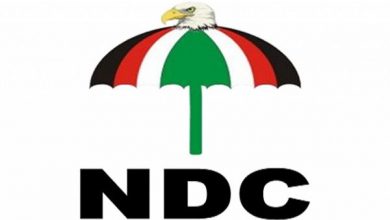
Having monitored government programs and policies, including the 2019 Budget Statement and Economic Policy, the Association of Ghana Industries has highlighted some key areas that still need government’s attention in order to create a competitive business climate.
The Association believes the competitiveness of local industry is key and the removal of such barriers to competitiveness is crucial for bolstering growth for the real sector and job creation prospects.
While AGI does not expect any new taxes in the forthcoming mid-year budget review, the Association expects a revision of some of the existing tax policies as submitted earlier by the Association for consideration.
Further to the aforementioned, AGI wishes to emphasize the following;
Reduction in Benchmark Values
The wholesale reduction of benchmark values for all imports is problematic. A number of key concerns are still being raised by our industrialists as follows; what will become of local manufacturing with the influx of finished imports attracting 50% reduction in benchmark value. Some of these imports to Ghana already enjoy significant export rebates from their countries of origin, thereby discouraging local investment in the affected sectors.
With the foregoing, locally manufactured products including those for which Ghana already has local production capacity and comparative advantage face serious threat from unfair competition. The situation is further worsened if importers of finished goods are not registered and captured under the VAT scheme as is largely the case and end up selling their products in the market without charging front end VAT/NHIL/GETFund.
Straight Levy (2.5% VAT and 2.5% GET Fund)
The straight levy regime introduced in the last midyear review is a disincentive to local manufacturing. Before the straight levy came into force, manufacturers recover 17.5% input 17.5% output Standard Rate VAT fully. Under this regime, Manufacturers can only claim 12.5%, leaving 5% as a cost burden, likely to be passed on to consumers. The 3% VAT Flat Rate scheme (VFRS) operators (retailers/traders) have been exempted from this 5% tax burden under this new regime.
In effect, manufacturers become less competitive. It becomes cheaper to import and sell to make profits than to manufacture same commodity locally. This 5% tax burden translates into the additional cost in millions of cedis to many local manufacturers. It is unfair to shift this 5% tax burden to manufacturers (17.5% standard rate operators) and therefore AGI is urging the Ministry of Finance to re-consider this negative impact on local manufacturing.
Luxury Vehicle Tax
AGI is once again urging Government to quickly review the luxury vehicle levy imposed on vehicles with high engine capacity of 2950cc and more. The definition for a luxury vehicle is a misnomer that increases cost of doing business. A number of companies which have fleets of such vehicles, not a luxury, registered in the company name and used mainly for distribution of their products/brands, yet being affected by this policy. This policy classifying such vehicle as luxury is misleading and must be either scrapped or reviewed.
AfCFTA Agreement
With the African Continental Free Trade Area (AfCFTA) agreement coming into force, Industry is calling on Government as a matter of urgency to help develop local production capacity through incentivizing Industry. Imported products which compete with products for which Ghana has a competitive advantage and local production capacity should not be duty-free. This will position Ghanaian industries to fully leverage the opportunities of the agreement, otherwise, Ghana runs the risk of being marginalized.
Fumigation Levy
We have seen a number of reforms being implemented at the ports in recent times. These are in no doubt to make the ports more efficient. One of such reform is the introduction of Fumigation Levy, intended to prevent the transfer of harmful living organisms accompanying cargos.
However, imported goods coming through the ports come with fumigation certificate, wherever applicable on such assets. Therefore, this levy already being charged only duplicates this exercise, counterproductive and therefore brings extra cost to businesses at the port.
6. Implementation of Government Industrial Initiatives
AGI acknowledges Government’s industrialization plan which is a strategic focus, introducing initiatives such as 1D1F, the stimulus package, development of industrial economic zones and industrial sub-contracting.
No doubt these will make significant positive impact and trigger industrial growth if well implemented, especially in the wake of the AfCFTA. However, the Association is concerned about the delay in the release of funds to support the private sector in implementing these initiatives. We call on Government to speed up the process to achieve the noble objectives of these programmes.
It is also laudable for Government to budget 1billion USD for industrial related activities such as 1D1F, stimulus package, export zone development and industrial enclaves. Again, what is critical is how effective and timely the resources pledged are deployed.
7. Excise Duty Rate on Bottled Water
The high excise duty regime on bottled water, a basic necessity in Ghana, is a major challenge. Ghana’s excise rate of 17.5% on bottled water is significantly higher than the ECOWAS recommended limit of 10% for non-alcoholic beverages which exempts water. Most countries in the sub-region do not levy excise on bottled water, making Ghana an outlier with such high rate of 17.5%. Examples of countries that do not levy excise tax on bottled water include Benin, Burkina Faso, Côte d’Ivoire, Mali, Niger, Nigeria, Senegal, Guinea Bissau and Togo and we therefore propose a waiver of this excise tax on bottled water.
8. Cedi Depreciation
9. High Cost of Electricity
High cost of electricity continues to be a major concern for businesses. Regardless of the 25% reduction in tariffs last year, cost of electricity remains high for industry whereas our peers in neighboring countries enjoy lower tariffs. Reversing the practice where Industry subsidizes residential consumers will further drive down the cost of electricity to industry and therefore measures must be taken to reverse this trend.
There have been recent indications of shortage in power supply and this does not help build confidence in the new distributor. It will be assuring for Industry to see regular and uninterrupted power supply in the power value chain.
10. Passage of Fiscal Responsibility Act
While we commend Government for the bold initiative of passage of the Fiscal Responsibility Act to ensure prudent expenditure by Government, we expect that the tenets of the Act will be strictly adhered to, to maintain macro-economic stability in both the short and long terms.
Finally, overnment’s fiscal policies must be business-friendly and fair enough to motivate compliance and to bolster growth of the Ghanaian economy for job opportunities.
Source: Joybusiness



